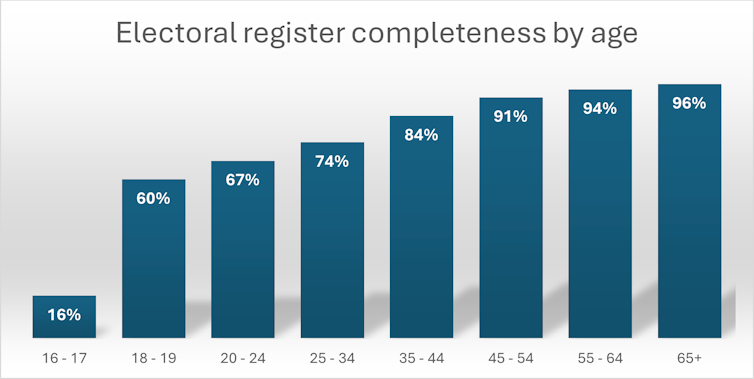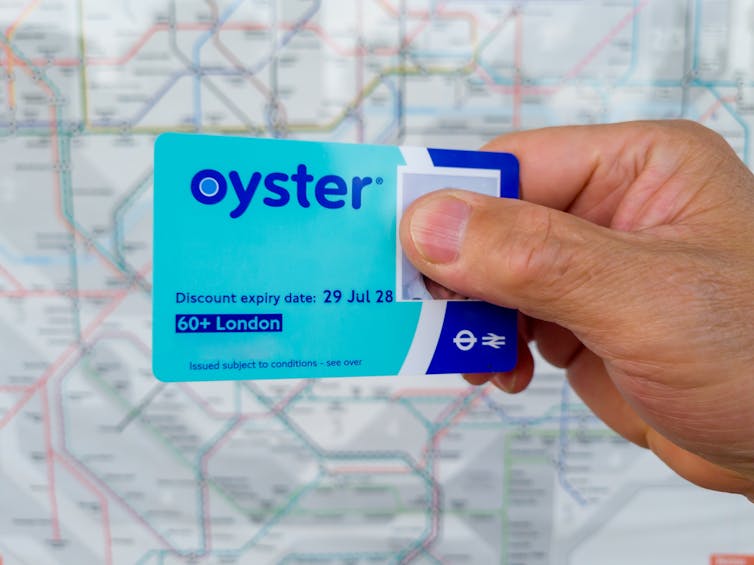The general election is to take place on July 4 – but up to 8 million people may not be correctly registered to vote.
The deadline for registering to vote is 11.59pm on Tuesday, June 18 – less than a month after the election was called by Rishi Sunak. Every citizen is required to make an individual application if they want to participate – rather than relying on a household member to do it for them, as used to be the case.
And for the first time in a general election, everyone will be required to show photo ID when they vote. Citizens who do not have a valid ID have until 5pm on Wednesday, June 26, to apply for free identification.
Research shows that many citizens often turn up to polling stations on the day of the election asking to vote, only to be told they can’t because they haven’t properly registered. This is generally because they have misunderstood voter registration or identification requirements. Gaps in the register are what leads the Electoral Commission to believe that as many as 8 million people could fall into this category.
Levels of voter registration vary enormously by demographic characteristics across the UK. One of the largest differences is by age group. Nearly all over-65s are registered, but only 60% of 18- and 19-year-olds. Those who were 16 or 17 when the latest research was carried out, but who may now be 18, are a particular cause for concern.
Registration is also lower among eligible Commonwealth citizens, black citizens, private renters and lower socioeconomic groups.

Although government research finds that young people are more likely to hold passports and driving licences than older groups, campaigners have raised concerns that there are fewer photographic identification options for young people.
Poll workers have also expressed concern that young people are discriminated against in the requirements. ID forms such as a freedom pass – a travel card for over-60s – are valid for voting, but not a young person’s travel ID.
The challenge of ensuring that young people’s voices are heard at the ballot box is compounded by the timing of the election. Universities often play an important role in registering their students. However, the July 4 election date falls outside of term time for most institutions. This means that students, already one of the least-registered populations, may get caught out. They will need to vigilant to get onto the rolls, given that many of them will be moving at the time of the registration deadline.
Under electoral law, students can register at both their home and term-time addresses. They can only vote in one place, like everyone else, but they can choose to place that vote either in their home constituency or their university constituency.
A rush to register
All these issues and more amount to a huge logistical effort ahead. The volume of registration and identification applications will pose a considerable challenge for electoral administrators.
The low underlying level of registration means that every electoral period sees thousands of last-minute applications – there were nearly half a million before the 2015 general election deadline. Research has shown that electoral services have been under increased pressure, and concerns have been raised about capacity.
This election also sees more overseas electors eligible to register, as rules were changed in January to give British citizens living overseas a lifelong right to vote, rather than no longer being eligible if they’ve lived overseas for more than 15 years.

However, the election is also an opportunity for parties to commit to changing this situation, and to aspire to have every eligible voter registered.
This could be done using automatic voter registration, a system which automatically adds people to the electoral roll when they interact with other government services. So, registering for a doctor or a driving licence would automatically land you on the electoral roll. This is used in many countries and is shown to generate more accurate and complete registers.

Want more election coverage from The Conversation’s academic experts? Over the coming weeks, we’ll bring you informed analysis of developments in the campaign and we’ll fact check the claims being made. Sign up for our new, weekly election newsletter, delivered every Friday throughout the campaign and beyond.
Another form of automatic voter registration would be to directly register citizens shortly before their 16th birthday when they are issued their national insurance number. This would add 700,000 citizens to the roll each year with minimal administrative effort. Auto-enrolment could also be embedded into universities to register millions of students.
Alternatively, short of being automatically registered, people could receive prompts to register to vote when they interact with government services.
A further simple improvement would be to make voter identification requirements more inclusive. The range of accepted voter ID could be expanded to include those that young people are more likely to have.
These are projects for future elections, however. The immediate focus must be a mass voter mobilisation effort to encourage everyone to register to vote and ensure they have the right ID. This could save many people from being turned away on July 4.

